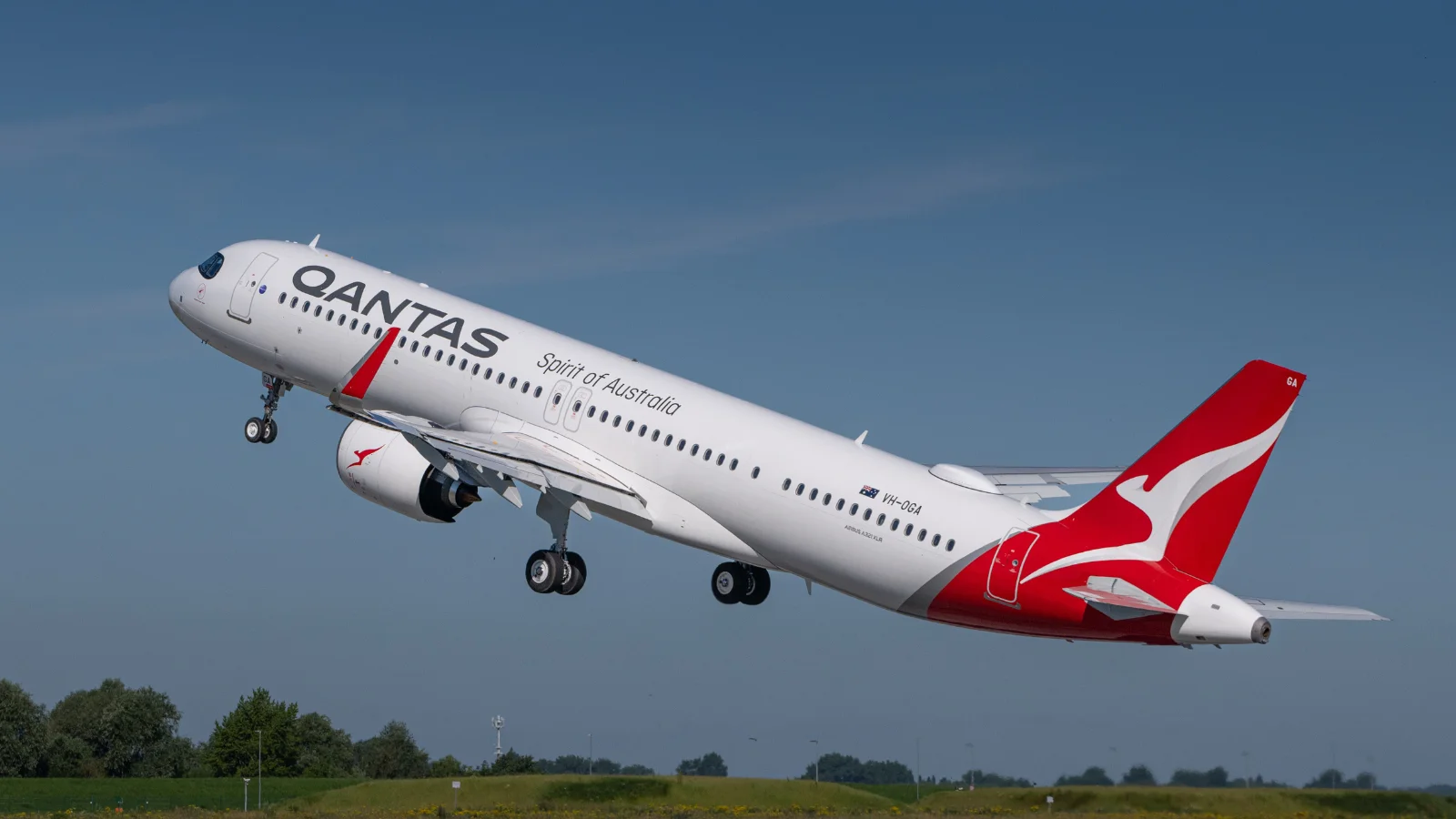While specific deployment details remain undisclosed, it is likely that the aircraft will initially serve popular domestic routes such as Sydney, Melbourne, and Brisbane. Qantas joins other airlines like Iberia, Aer Lingus, and Wizz Air in operating this aircraft type.
The A321XLR offers significant improvements over existing short-haul planes in the QF network. It features larger overhead lockers—60% more space compared to older 737 jets—accommodating at least one wheeled carry-on bag per passenger.
This model also allows for increased seating capacity without reducing legroom. The domestic configuration includes 20 business class seats arranged in a 2-by-2 layout across five rows—a notable increase from the current offering on the Boeing 737. Business class passengers will benefit from a seat pitch of 37 inches along with extendable calf and footrests.
Economy class features a standard 3-by-3 layout with 177 seats—15 more than on the Boeing 737—and slightly wider seats maintaining a seat pitch of 30 inches. All seats come equipped with USB-A and USB-C power outlets; business class additionally offers wireless charging devices. However, there will be no seatback entertainment systems onboard; passengers are encouraged to use their devices via the Qantas app.
Sarah Collins from Qantas shared insights about the registration of this new aircraft on LinkedIn. It will bear VH-OGA—a registration previously used by retired Boeing 767-300s—and carry the nickname 'Great Ocean Road', named after a scenic route in Victoria known for its coastal views and natural landmarks like the Twelve Apostles rock formation.
Powered by two Pratt & Whitney PW1133G engines, this A321XLR had its first test flight on April 8, 2025 under German registration D-AXXE. Its arrival marks an important step forward in Qantas' ongoing development plans.
 Alerts Sign-up
Alerts Sign-up









